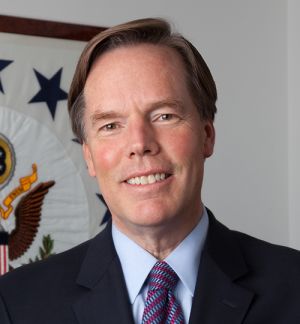SEEMINGLY EVERYWHERE he turns these days, President Obama is facing criticism of his foreign policy leadership. And the critics aren’t the usual suspects — Russia, China or the Castro brothers — but some of America’s very best friends.
NATO allies, led by Germany, are furious over the Snowden allegations. Israeli leaders, backed ironically by the Gulf Arab States, worry the United States is leaning too far forward in nuclear negotiations with Iran. Turks allege American weakness in standing up to Syrian President Bashar Asad, Iran, and Hezbollah in Syria’s roiling civil war. The Saudis have even launched an intemperate and ill-advised public campaign on what they see as Washington’s passivity and indecisiveness as the reigning global leader.
When he was reelected one year ago, there was little such criticism from America’s friends. Obama was given high marks overseas for a generally effective foreign policy. So, what has changed? Are the complaints warranted or more the result of Middle East revolutions gone wrong and an unsure Europe in transition?
To be fair to the president, he has authored a number of impressive international achievements over his first five years in office. He met his campaign promise to deliver us from Iraq, and will withdraw the great majority of our forces from Afghanistan by this summer. The NATO intervention in Libya prevented a potential massacre of Libyan civilians and led to Moammar Khadafy’s ouster. Obama has led an effective and unyielding war against Al Qaeda, culminating in the death of Osama Bin Laden. And in perhaps his most important presidential initiative, Obama laid out a compelling new strategy for the United States to make Asia the priority in the decades ahead.
But, especially in the Middle East, longtime American friends believe the United States is now turning away from its customary leadership role. When administration officials emphasize the limits of American power in the Arab world and a determination not to be captured by its constant crises, it feeds the perception among Arab leaders that we’ll no longer be there for them when it counts. After all, most Arabs still view us as the most influential power in the neighborhood. But the administration’s hesitant efforts to try to resolve Syria’s civil war, and its inconsistent handling of its relationship with Egypt’s military government, risk weakening the influence and credibility we’ve earned over five decades. This is not what the administration intends, but it is the strong perception of many Arabs.
How can Obama respond to these Arab concerns?
First, he could promote an ambitious program to help the people of the Arab world, reeling from the turbulence and chaos of their failed revolutions. Obama could consider the kind of visionary effort George W. Bush launched in response to the HIV/AIDS crisis in Africa a decade ago. In advancing a major economic aid package, for example, Obama might begin to counteract the fear of many Arabs that we are pivoting away from the peoples of the Middle East when they most need our help.
Second, Obama needs to win on Iran. Nothing will do more for American credibility and leadership in the Middle East than stopping Iran’s drive for nuclear weapons. His indecisiveness on Syria earlier this autumn has convinced some Arab leaders that he won’t stick to a tough-minded approach on Iran. His instinct to negotiate is right, but if talks fail he needs to convince Arabs as well as Israelis that he will not permit Iran to acquire nukes.
Third, and most importantly, Obama needs to articulate in word and deed that the United States will stand by longtime friends such as Saudi Arabia, the United Arab Emirates, Jordan, and Lebanon. That is the message Secretary of State John Kerry is sending in this week’s trip to the region and in his commendable work for Israeli-Palestinian peace. The United States is actually in a strong position to lead. But the president does need to reaffirm the confidence and commitment that have been a constant among all our modern presidents from Richard Nixon to Bill Clinton and George W. Bush in the still vital Middle East.
Burns, Nicholas. “Mideast allies crave leadership from US.” The Boston Globe, November 7, 2013





